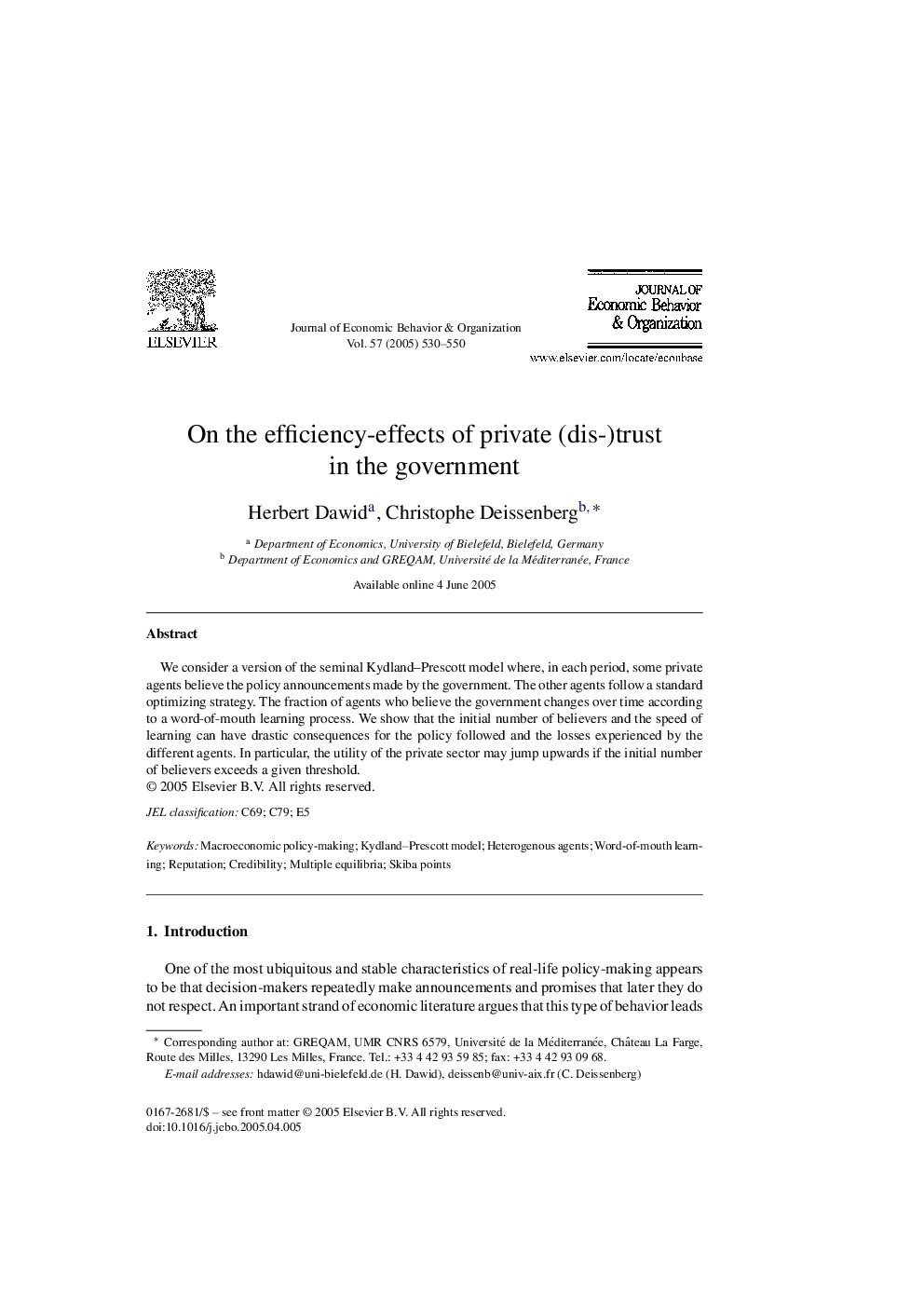| Article ID | Journal | Published Year | Pages | File Type |
|---|---|---|---|---|
| 10437769 | Journal of Economic Behavior & Organization | 2005 | 21 Pages |
Abstract
We consider a version of the seminal Kydland-Prescott model where, in each period, some private agents believe the policy announcements made by the government. The other agents follow a standard optimizing strategy. The fraction of agents who believe the government changes over time according to a word-of-mouth learning process. We show that the initial number of believers and the speed of learning can have drastic consequences for the policy followed and the losses experienced by the different agents. In particular, the utility of the private sector may jump upwards if the initial number of believers exceeds a given threshold.
Related Topics
Social Sciences and Humanities
Economics, Econometrics and Finance
Economics and Econometrics
Authors
Herbert Dawid, Christophe Deissenberg,
